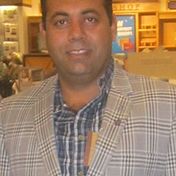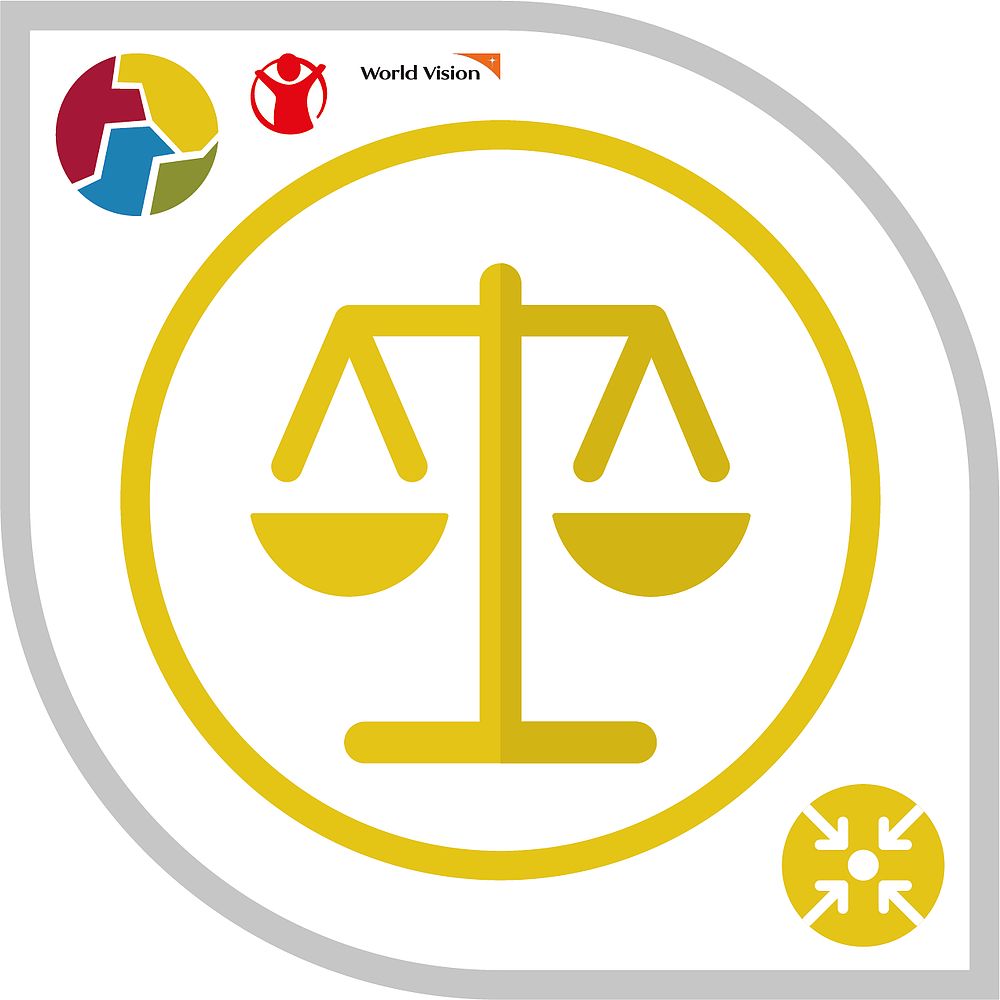概要
Muhammad Ishaq Israr (Ishaq) is a humanitarian worker and a peacebuilder. He has a Master's Degree in International Relations from the University of Peshawar, Pakistan, and has a Graduate Certificate in Organizational Leadership from Eastern Mennonite University (EMU), VA, USA. Mr. Ishaq has seventeen years plus experience in designing, implementing, and coordinating humanitarian, peacebuilding and sustainable development projects at the domestic and international level. He has responded to several natural disasters and complex emergencies (Earthquakes, floods, armed conflict, internal displacements, post-conflict scenarios) in Pakistan. He has designed, managed and implemented more than 100 humanitarian and peacebuilding projects/programmes and led 150 plus employees in various capacities. Mr. Ishaq has key expertise in project development and management, partnerships management, strategic planning, coordination, Reporting, organizational development, and Programme policies and SOPs development. Currently, he is working with a British organization “Penny Appeal” (www.pennyappeal.org), as the Country Director for Pakistan. Mr. Ishaq is a CHS (Core Humanitarian Standards) oriented manager and a Sphere Badge holder (Member of Sphere community) and HPass Field Equality, Diversity and Inclusion Badge holder.
项目
工作经历
Country Director/CEO
Leading the Penny Appeal operations in Pakistan.
Public relations and coordination with country level stakeholders and government counter parts.
Leading the country team and responsible for operations, administration, human resource, procurement, finance and monitoring of PAPK activities in the country.
Managing upto £5Million annual budget for Pakistan.
Head of Programmes
Penny Appeal (PA) is an award-winning international charity offering a range of life-saving humanitarian and development focused solutions in over 30-crisis hit countries. As one of the fastest-growing charities in the UK, Penny Appeal has transformed countless numbers of lives and empowered communities around the globe, helping to break the poverty cycle through a simple vision; taking a small change and making a big difference.
Penny Appeal is working in Pakistan since 2013 in sectors like Child protection, Elderly care, Quality education, Access to water, Sustainable livelihood, Emergency Response, Alternative energy solutions, and social cohesion through village development Programmes. PA is collaborating with more than 40 local organizations and government offices in Pakistan and contributing approx. £12 Million (annually) to the local economy.
As a Head of Programmes for Pakistan, I am coordinating between the Programmes Department HQ (UK) and inside Pakistan programmes. I am supporting the Country Director in planning, designing and managing the country-level programmes and operations and responsible for the implementation of country programmes as per agreed strategy, budget and work-plan. I ensure that programme and financial progress of approved projects are carried out as per agreed policies and SOPs through effective coordination, strong partnerships, capacity building, timely monitoring visits, and produce high-quality reports.
In this way, my role not only covers programmes but strategic supervision and advice to other support functions such as HR, Finance, Procurement, Logistics and Administration. During the absence of the Country Director, I was also assigned additional responsibilities as Acting-CD for few weeks. I have also severed in PA Headquarters in Wakefield UK for four weeks.
As Head of Programmes, my core functions are:
Programmes Management: Ensure effective implementation of PA and donors funded programmes following agreed guidelines, strategy, budget and timeframe with the assurance that all risks are identified and mitigated. Monitor the financial flow of the project and assess the Value for Money.
Programmes Development: In consultation with the relevant stakeholders, government counterparts, technical experts and local partners, design and plan projects and programmes based on needs identified and their alignments with national strategies, international standards and SGDs.
Monitoring, Evaluation and Reporting: Ensure that an appropriate system is in place for the lesson learnt and knowledge management. Ensure to generate high-quality reports, programmes briefs’ and success stories.
Partnerships Management: Establish long term and sustainable partnership with local organizations through transparent partners selection process, technical and institutional strengthening, capacity building, finance and compliance, addressing cross-cutting themes and support in producing high-quality reports/documents.
People Management: Provide high-quality leadership and support to programme managers and specialists through mentoring, coaching, training and learning by doing.
Coordination and Liaison: Ensure effective coordination and partnership development with public offices, policymakers, donors, institutions, networks to secure support in achieving organisational objectives.
Major Achievements:
I have successfully established partnerships with national networks, ministries, state departments and 40 national and local organization across the country and developed the capacity of organization and partners to the next level.
I have raised the country portfolio from £2M to £5M annually through the expansion of programmes and strengthening organizational systems.
I have led the development of policies and SOPs for programme partnership management, Remote project management, financial controls, Value for Money, Human resource management, procurement, child protection, beneficiary safeguarding, projects compliance, transparency, and accountability from the grassroots to leadership level.
Program Manager
Just Peace International (JPI) is a peacebuilding organization working in Pak-Afghan border areas and Khyber Pakhtunkhwa (KP) province of Pakistan. JPI, in collaboration with UNICEF, The Asia Foundation, European Commission, UNHCR, Oxfam GB, and other institutional donors, has effectively transformed the indigenous dispute resolution systems and worked on Social cohesion, peacebuilding in education, co-existence among Pak-Afghan communities. JPI has worked with government institutions, including Police, Judiciary, Prosecution, and Prison departments, to build their capacity on modern peacebuilding practices. These include Restorative Justice Systems, Transitional Justice, and revival of indigenous alternative dispute resolution systems.
Mr. Ishaq has worked with JPI for more than six years on diverse positions, from Mid management to senior level management. During his tenure at JPI, he was responsible for fundraising from institutional donors, supervision, and coordination of multi-disciplinary and multi-donor projects. He was also responsible for the identification of potential Implementing Partners (IPs) and their capacity assessment in consultation with Admin/Finance, procurement, and M&E sections. He has managed and coordinated more than 13 diverse sectoral projects at a time, including humanitarian assistance, Peacebuilding & ADR projects implemented through various partner organizations and self-implementation. He provided guidance and support to the partner organizations in project execution, coordination, monitoring, and furnishing of project reports. Mr. Ishaq also contributed to the revision of the organization’s policies and SOPs, including HR, Program implementation, M&E, Field Security, and Gender Mainstreaming. During his tenure, he secured 5 million USD funds for more than five programs from diverse donors, including UNICEF, UNDP, The Asia Foundation, Concern Worldwide (OFDA/USAID), UNHCR and UNFPA.
Achievements:
Following are the key achievements during Mr. Ishaq’ s tenure in JPI:
Successfully implemented peacebuilding projects. He contributed to the establishment of the Reconciliation Committees at the police station level in ten (10) districts of Pakistan. The members of the reconciliation committee were trained on conflict analysis, stakeholder analysis in conflict, family group conferencing, and the Restorative justice system. The reconciliation committees reconciled an average of 4000 disputes annually. Later on, under the law of the country, the reconciliation committees were upgraded and transformed to Dispute Resolution Councils (DRCs) at the police station level.
Developed proposals and budgets for peacebuilding and humanitarian projects and secured funds for more than 15 projects during his tenure.
Developed program standards operating procedures and ensured smooth implementation of projects and programs at various locations with various partner organizations.
Ensured timely completion of projects/programs and submitted Project periodic/completion reports & supporting documents/material to the donors and Executive director.
Managed the implementation of multi-sectoral projects and tracked financial flow to ensure that organizational and donors’ policies and procedures are followed.
Led the developement of M&E, Field Security, Gender mainstreaming, program implementation guidelines, and procedure documents.
Established partnerships at the grass-root level with civil society organizations and government line departments. He also inducted partnership mechanisms at the grass-root level to empower grass-root organizations and ensure local ownership.
Ensured cross-cutting themes and participation of extremely vulnerable communities in project planning, implementation, and sustainability.
Consultant Training Specialist-
United Nations Development Program (UNDP) in collaboration with Law and Justice Commission of Pakistan, KP Judicial Academy, Provincial Police Department (KP), Civil Society Organizations, and a national University IMSciences initiated Strengthening Rule of Law program in Malakand-SRLM (a post-conflict affected Swat region) of KP province. The SRLM program focused on strengthening the judicial system, upgrading and transforming indigenous dispute resolution systems (JIRGA), and equipping police departments with modern technology and investigation approaches. (Project link)
As a Training Specialist, Mr. Ishaq was responsible for the development of training modules on traditional peacebuilding approaches/Alternative Dispute Resolution (ADR) with the incorporation of modern peacebuilding techniques. He also contributed to the development of the Case Management module for prosecution and Judiciary. Mr. Ishaq delivered Training of Trainers (ToTs) on ADR for Local ADR practitioners and judicial officers as Lead Technical Trainer and Co-Facilitated another ToT on Case Management for Prosecution and Judicial officers in KP Judicial Academy. He also delivered sessions/lectures on the need to upgrade and transforming the Indigenous Alternative Dispute Resolution mechanism (Jirga/Penchayet/Faisalo, etc.) at a national university named “IMSciences,” KP Judicial Academy and Police department. The audience was Students of Social sciences, in-service Judicial Officers, and Police officers.
Programme Manager - Lead Humanitarian Response section
Responsible for process and progress monitoring of all three components of Pakistan Safe Drinking Water & Hygiene Promotion Project (PSDW-HPP) project including School Hygiene Promotion, Community Hygiene Promotion and Capacity building of LG, PHED, TMA staff in 7 districts of KP and 3 Agencies of FATA. The project was implemented by 7 Local NGOs. I was responsible for the monitoring of partners activities through monitoring and research tools including checklists, Monitoring Framework, Interviews, SSIs, FGDs and spot checks were utilized to measure indicators and identify gaps in implementation and shared the lesson learned from the field.
Major achievements include data collection from partners within the time frame. Sharing of best practices by partners with Country Office as a lesson learned.
Time off
I took a time off to complete my studies
Project Manager
Pakistan Village Development Programme (PVDP) is a national-level organization. In October 2005, Pakistan Occupied Kashmir and northern areas of the country faced massive earthquakes leaving more than eighty thousand casualties. PVDP as a partnered with UNICEF and initiated relief and early recovery projects. Mr. Ishaq had joined the School and community Water, Sanitation, and Hygiene (WASH) program. He was appointed as Project Officer for monitoring and later on promoted to Project Manager.
Achievements:
Ensured the effective implementation of the project through effective coordination with all stakeholders.
Implemented the project within the agreed budget and timeline.
Ensured the involvement of the stakeholders, including the education department and the parents-teachers council, and secured the sustainability of the project.
The project contributed to a decreased dropout of the students, especially of adolescent girls, as necessary facilities were provided in the premises of the schools, and a protective and friendly learning environment was established.
Social Organizer
Mr. Ishaq started his career in the development sector as a social organizer and worked with local communities and grass-root organizations. As a social organizer, his core responsibilities were Village profiling, local resources identification, identified potential activists, and facilitate community-based organization during exposure visits. He facilitated workshops on social mobilization and community organization. He also furnished events reports and assisted Project Manager in the documentation, filing and developing case studies, and maintaining daily records.








